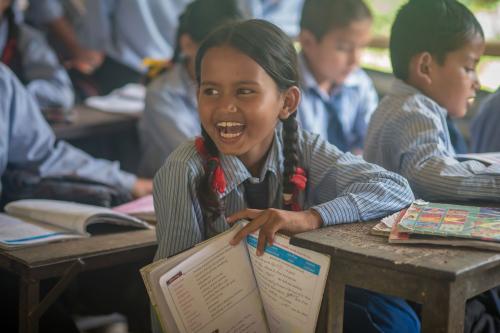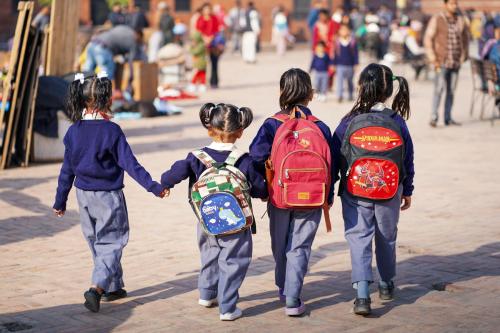The UNESCO Institute for Statistics and the Global Monitoring Report recently released new numbers for out of school children. According to the data, 61 million children of primary school age were not in school in 2010. At first glance, this seems like an improvement over the 67 million kids reported out of school in 2009. Unfortunately, that’s not the case.
If you take a look at the footnotes, you find that UNESCO used new UN Population Division data to calculate the number of out-of-school children. Using the new calculations, UNESCO had previously revised the 2009 statistic down to 61 million. While we should be outraged that we are only able to analyze education statistics that are two years out-of-date, we should be more outraged about what this says about our commitment to education: it is stagnating and declining.
Hundreds of millions of dollars have been spent by governments and donors. There have been countless hours of meetings at the global, regional and local levels on education. And new policies, strategies and plans have been worked and reworked. Yet, 61 million children are out still of primary school. While the global number indicates that we may have made no progress from 2009-2010, regional numbers show an even worse story. While countries in South and West Asia have steadily decreased their out-of-school population over the last 20 years, in sub-Saharan Africa, increases in enrollment have not matched population growth. The number of out of school children has increased from 29 million to 31 million over the last three years, indicating that we are in fact moving in reverse.
With increasing youth populations and no prospects for a significant increase in resources under the current status quo, we are far off course for meeting even a basic development goal by 2015: getting all children into school. At his speech at Brookings on Wednesday, former President Bill Clinton stated, “No country can work itself out of poverty with aid alone.” Education is everyone’s responsibility— it’s time for everyone to step up to the plate. The global community as a whole must prioritize education before the situation gets even worse.
The Brookings Institution is committed to quality, independence, and impact.
We are supported by a diverse array of funders. In line with our values and policies, each Brookings publication represents the sole views of its author(s).



Commentary
It’s Time for a Development Wake-up Call: Sad News for Global Education and the MDGs
June 14, 2012